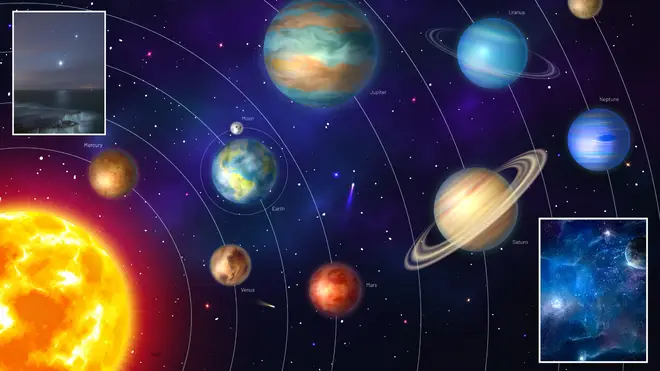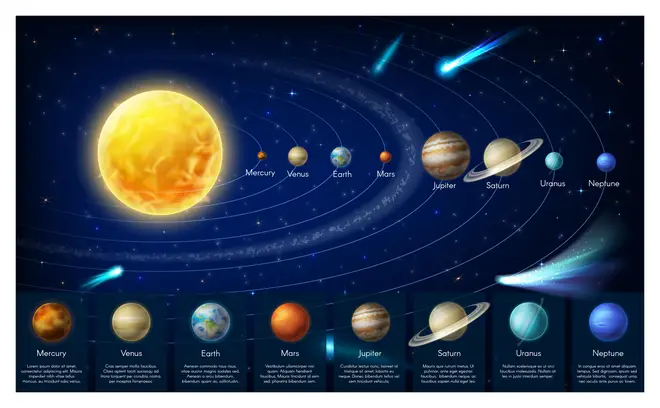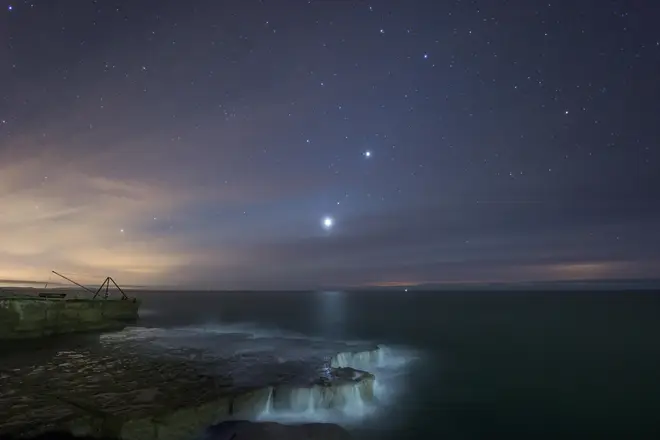Five planets align UK: How and what time to see Jupiter, Saturn, Mercury, Neptune, Uranus
16 June 2023, 12:27

This is how and what time you can see the five planets Jupiter, Saturn, Mercury, Neptune and Uranus as they align in the sky this weekend.
Five planets will align in the skies on Saturday, 17th June, in a rare planetary parade.
Jupiter, Saturn, Mercury, Neptune and Uranus will gather closely to one side of the sun in the early hours of the morning, making for a celestial sight not to be missed.
People hoping to see the alignment have been told to look to the Eastern Horizon around one hour before sunrise on Saturday.
While Jupiter, Mercury and Saturn will be able to be seen with the naked eye, Neptune and Uranus will require binoculars or a telescope to be spotted.

Star Walk explain that a planetary alignment is an "astronomical term used to describe the event when several planets gather closely on one side of the Sun at the same time."
They add that the term 'planetary parade' is a "colloquial term that means, in the broadest sense, that several planets are present in the sky in one night".
The site recommends that for people eager to see the five planets align, they should download the free app Sky Tonight which can locate the planets for you and give you an idea of where to look.

Saturn is expected to be the first of the planets to become visible, most likely in the very early hours of Saturday. It will then be followed by Neptune, Jupiter, Uranus and finally Mercury.
Jupiter will be the easiest planet to spot as it will be the brightest celestial object in the morning sky.
Another tip for people looking to view the planetary parade is that while stars will twinkle in the sky, the planets will not.
For the best chance to see the planets, it is recommended you view them in an area with a very dark sky with little light pollution. You should also search for a clear view of the horizon.
This means, sadly, that if you live in a city your chances of seeing the celestial moment will be less likely.

Brian Cox says space travel could start within 10 years























